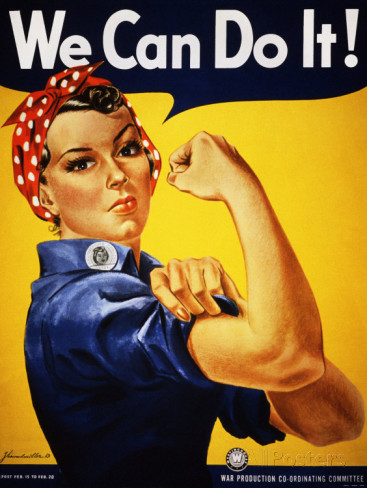I have been receiving a lot of compliments lately about my improved physique (thanks, guys!). And while I am still a long way towards my fitness goal (because fitness is a journey, it doesn't happen overnight), I did lose considerable weight over the past few months. :)
Now, many of you, my dear readers have been sending me questions on how I achieved this significant change in my physique. Well, guess what? It's none other than TENNIS. :D
Yup, I have long been a tennis enthusiast but never have I actually considered tennis as a fitness regimen.
 |
| I mean, I love watching tennis matches, but me playing tennis? Who would have thought! :D (Image copyright: Jessica E. Vitangcol) |
Lately, however, after the International Premiere Tennis League Manila leg, I have found myself to be more inclined in the sport, and little did I know that I have already been playing it a lot that it has become my regular exercise! Whoah! :D
Now, my daily routine always consists of an hour or two at the Manila Polo Club where I play a set with other club members.
If you are thinking of trying out this sport and using it as your means of regular exercise, then go for it! Tennis is a good sport for maintaining health, fitness, strength, and agility. PLUS, it has social and psychological benefits as well. But if you are still not convinced that you should get yourself into tennis, let me break down to you the TOP REASONS WHY YOU SHOULD PLAY TENNIS. :)
1. Tennis helps you live longer.
Scientists and doctors around the world point to tennis as one of the most healthful activities in which you can participate, delivering overall physical, mental, and emotional gains. Simply put, it will add years to your life and life to your years. (lifetimefitness,com)
2. Tennis makes for a happier life.
Tennis engages your mind and body at the same time, unlike a typical workout at a gym. Because tennis players are more confident, healthier, less stressed, and more socially interactive, we are just plain happier. :)
3. Tennis is social.
On and off the court, you are guaranteed to make friends through tennis (shoutout to my friends from Manila Polo Club! :) ). This is because tennis encourages interaction, communication, and just plain FUN. :D
4. Tennis teacher life lessons.
By playing tennis, participants, especially teenagers like me, develop work ethics. learn sportsmanship, accept responsibility, manages mistakes, enhance discipline, learn to cope with pressure and adversity, and develop over-all healthy habits.
5. Tennis can be anything you want it to be.
If you are looking for competition, social play, team camaraderie, a good workout, time with family or friends, YOU CAN HAVE ALL OF THAT IN TENNIS because it can be anything you want it to be and more! :)
Tennis, for many of us, is a huge part of our lives. The sport broadens our network of friends. It helps us burn calories and stay in shape. Families can enjoy playing together. And, of course, it's just plain fun. And if that doesn't get you sold, I don't know what will. Now, excuse me will I come out swinging and give Serena Williams a run for her money. :D
 |
| Ready for an ace, :D (Image copyright: Jessica E. Vitangcol) |
Now, my daily routine always consists of an hour or two at the Manila Polo Club where I play a set with other club members.
If you are thinking of trying out this sport and using it as your means of regular exercise, then go for it! Tennis is a good sport for maintaining health, fitness, strength, and agility. PLUS, it has social and psychological benefits as well. But if you are still not convinced that you should get yourself into tennis, let me break down to you the TOP REASONS WHY YOU SHOULD PLAY TENNIS. :)
1. Tennis helps you live longer.
Scientists and doctors around the world point to tennis as one of the most healthful activities in which you can participate, delivering overall physical, mental, and emotional gains. Simply put, it will add years to your life and life to your years. (lifetimefitness,com)
2. Tennis makes for a happier life.
Tennis engages your mind and body at the same time, unlike a typical workout at a gym. Because tennis players are more confident, healthier, less stressed, and more socially interactive, we are just plain happier. :)
3. Tennis is social.
On and off the court, you are guaranteed to make friends through tennis (shoutout to my friends from Manila Polo Club! :) ). This is because tennis encourages interaction, communication, and just plain FUN. :D
4. Tennis teacher life lessons.
By playing tennis, participants, especially teenagers like me, develop work ethics. learn sportsmanship, accept responsibility, manages mistakes, enhance discipline, learn to cope with pressure and adversity, and develop over-all healthy habits.
5. Tennis can be anything you want it to be.
If you are looking for competition, social play, team camaraderie, a good workout, time with family or friends, YOU CAN HAVE ALL OF THAT IN TENNIS because it can be anything you want it to be and more! :)
Tennis, for many of us, is a huge part of our lives. The sport broadens our network of friends. It helps us burn calories and stay in shape. Families can enjoy playing together. And, of course, it's just plain fun. And if that doesn't get you sold, I don't know what will. Now, excuse me will I come out swinging and give Serena Williams a run for her money. :D
 |
| (Image copyright: Jessica E. Vitangcol) |
Reference: Benefits of Tennis https://www.lifetimefitness.com/en/content/details/articles/benefits_of_tennis.html









